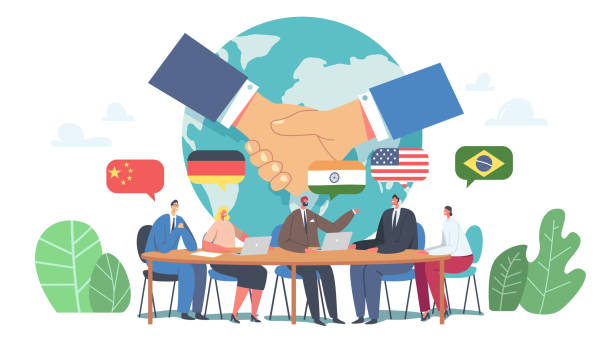Foreign policy and diplomacy are two important concepts and practices in international relations, and they are often used interchangeably or confused with each other. However, they are not the same, and they have different meanings, histories, types, and roles in the global arena. In this blog, we will explore the major differences between foreign policy and diplomacy, and why they matter for our lives and the future of humanity.
Meaning and Definitions of Foreign Policy and Diplomacy
Foreign policy is the set of goals, strategies, and actions that a state or a non-state actor pursues in its relations with other actors in the international system. Foreign policy reflects the interests, values, and preferences of the actor, and it guides its decisions and behaviors in the global arena. Foreign policy can be influenced by various factors, such as the domestic politics, culture, and economy of the actor, the structure and dynamics of the international system, and the interactions and feedback from other actors.
Diplomacy is the process and practice of communication and negotiation between actors in the international system, with the aim of achieving their foreign policy goals and resolving their conflicts and disputes. Diplomacy involves the use of various methods and tools, such as dialogue, persuasion, compromise, and coercion, to influence and shape the behavior and outcomes of other actors. Diplomacy can be conducted by various agents and channels, such as diplomats, ambassadors, envoys, and mediators, and through various forms and forums, such as bilateral, multilateral, and summit diplomacy.
History of Foreign Policy and Diplomacy
Foreign policy and diplomacy have a long and rich history, and they have evolved and changed over time, along with the development and transformation of the international system and the actors in it. The evolution of foreign policy and diplomacy can be traced back to the ancient times, when the first civilizations and empires emerged and interacted with each other, and when the first forms of diplomacy, such as envoys, treaties, and alliances, were practiced.
Foreign policy and diplomacy also developed and diversified in the medieval and modern times, when the rise and fall of various states and empires, the emergence and spread of various religions and ideologies, and the discovery and colonization of various regions and continents, shaped and reshaped the international system and the actors in it. Foreign policy and diplomacy also reached new heights and challenges in the contemporary times, when the advancement and globalization of technology, communication, and transportation, the emergence and proliferation of various non-state actors and issues, and the occurrence and prevention of various wars and crises, transformed and complicated the international system and the actors in it.
Types of Foreign Policy and Diplomacy
Foreign policy and diplomacy are not monolithic or homogeneous, but rather diverse and complex, and they can be classified and analyzed in different ways. One common way is to divide them into two broad categories: hard and soft.
Hard foreign policy and diplomacy involve the use of force or threat of force, such as military intervention, economic sanctions, and nuclear deterrence, to achieve the goals and interests of the actor, and to coerce or compel other actors to comply or concede.
Soft foreign policy and diplomacy involve the use of attraction or persuasion, such as cultural exchange, humanitarian aid, and public diplomacy, to achieve the goals and interests of the actor, and to influence or convince other actors to cooperate or collaborate.
Hard and soft foreign policy and diplomacy are not mutually exclusive, and they can be used in combination or alternation, depending on the situation and the actor.
Major Difference between Foreign Policy and Diplomacy
The major difference between foreign policy and diplomacy is that foreign policy is the what and diplomacy is the how of international relations. Foreign policy is the end and diplomacy is the means of international relations. Foreign policy is the objective and diplomacy is the instrument of international relations. Foreign policy determines the goals and interests of the actor, and diplomacy implements and achieves them. Foreign policy defines the problems and challenges of the actor, and diplomacy solves and addresses them. Foreign policy sets the agenda and diplomacy executes it.
Importance of Foreign Policy and Diplomacy
Foreign policy and diplomacy are important and relevant for our lives and the future of humanity, as they affect and are affected by the various issues and topics that we face and deal with in the global arena, such as security, trade, human rights, development, and environmental protection. Foreign policy and diplomacy also enable and facilitate the communication and cooperation between actors in the international system, and help to prevent and resolve the conflicts and disputes that arise among them. Foreign policy and diplomacy also shape and influence the world order and the global governance that we live in and aspire for.
Conclusion
In this blog, we have introduced the meaning and definitions, the history, the types, the major difference, and the importance of foreign policy and diplomacy. We hope that this blog has given you a brief and clear overview of the concepts and practices of foreign policy and diplomacy, and that it has sparked your interest and curiosity to learn more about them.



